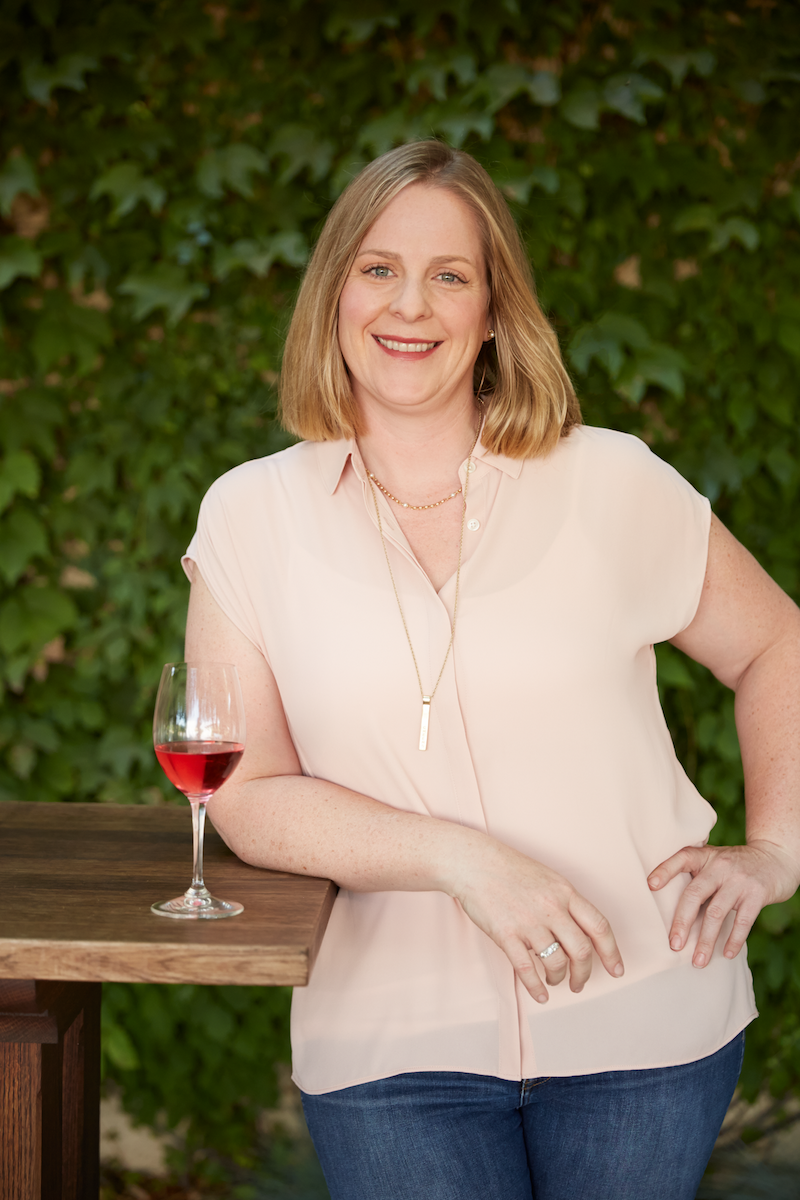Raised around the prized Concord grapes, and with regular trips to the Niagara Wine Festival, Schofield never imagined a career in winemaking even though it was all around her.
Written by Ross Dias
Robert Mondavi changed California wine-making in the sixties when he introduced the Fumé Blanc. And, even though he had coined the term from a portmanteau of Pouilly-Fumé, France, and Sauvignon Blanc, Mondavi never trademarked the term. The more people who used it, the better, because Mondavi was not looking to create recognition for his own label, but the then poorly known Napa Valley region.
Now, a Canadian woman from St Catherines, Ontario, is one of the lead winemakers of the Robert Mondavi Fumé Blancs, after joining the company in 2015. “If you’re looking for something that isn’t terribly serious but is good quality, versatile and refreshing – that’s what this is!” says Megan Schofield. “It has the citrus aromatics of the Sauvignon Blanc, but because we do barrel ferment – with a little creaminess and weight.”
With regular trips to the Niagara Wine Festival, Schofield never imagined a career in winemaking even though it was all around her. It was at university, after rethinking her degree in biotechnology, that she saw her interest in the process’ scientific qualities. Schofield graduated from the inaugural class of Brock University’s “Cool Climate Oenology and Viticulture Institute” with only nine other peers. We caught up with Schofield, when she visited Toronto in April to ask her a few questions about her career, making wine and mentorship.
How were you introduced to wine-making?
I never ever pictured myself being a wine-maker. It wasn’t like I grew up in a wine family, but I feel very fortunate to have found this career path. I went to Brock University after high-school and I enrolled in bio-technology. Looking around after my second year, I was not very excited about my career prospects. I didn’t see myself working in a laboratory or going to grad school. At that time, Inniskillin had won a Grand Prix d’Honneur and Canadian wine had entered the international stage. But, the industry didn’t have any Canadian-educated wine professionals because most Canadians went to UC Davis or schools in Australia. Brock University answered that call with opening a degree program in oenology and viticulture. So I applied and I got right into the third year of the program because I had already taken all the required science courses under biotechnology, and I was in the first graduating class at Brock in 2000.
How did your education help you move forward in the industry?
I think I cut my teeth for a long time. Wine-making is like becoming a chef. You have to work in the trenches for a long time, and that was hard. When I graduated and had my degree and all this education, I really wanted to walk out and have a great job, but that’s not how it works. If you’re going to ask people to move wine or bottle it, you have to know how to do it yourself. School gave me the scientific foundation to understand the process but doing the work myself was really important.
How are you passing on your knowledge?
I have a young mentee, a winemaker, who came to me and asked for me to be his mentor. I was flattered and it was just about giving him the opportunity, when I could, to taste with me. I’m also part of an organization called Women for Winesense, where I am a resource for the younger generations coming into the industry.
What do you bring to a storied brand like Robert Mondavi?
I started out with a plan to work at a lab in California for three months, and I ended up in California much longer than I had planned, moving around the area until I landed at Robert Mondavi. When I started there, my philosophy was: I’m not going to show you how to do anything, I know how to make a nice Chardonnay but you need to show me how you do it. Show me the framework and within that framework, I’ll take my experience and tweak things here and there. I’ve been full-time for 18 years and I still learn something every year, every vintage. There’s no right or wrong way to make wine, it’s getting to know the vineyard. Sometimes vineyards are so different from one end to the other, because the vines are shaded by trees or the soil is a little different. That knowledge of a vineyard comes with working with the same piece of land for a long time and working with people like Geneviève Janssens, who is one of my mentors. She’s worked with the vineyard for more than 30 years. No one knows that dirt like she does.








